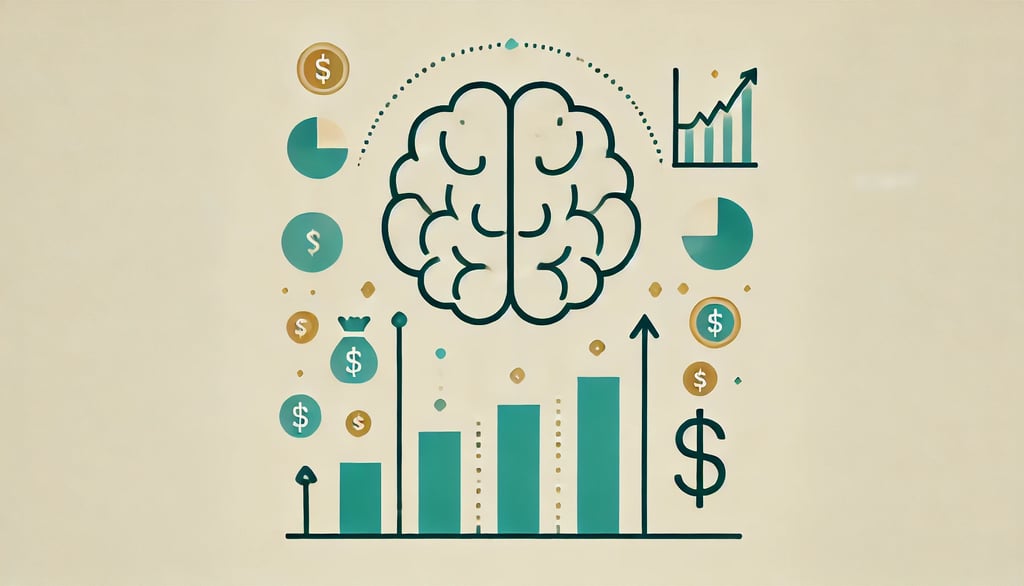The Money Mindset
Your money mindset shapes how you earn, save, and spend money. A positive financial mindset leads to smart money habits, while a negative one can keep you stuck in debt. In this blog, discover what a money mindset is, examples of good vs. bad money mindsets, and practical steps to improve your financial thinking. Learn how to develop a wealth-building mindset, make better financial decisions, and take control of your financial future. Start transforming your money mindset today!
2/10/20252 min read


The Money Mindset: How Your Thoughts Shape Your Wealth
Your money mindset is how you think about money. It affects how you earn, spend, and save. A strong money mindset helps you build wealth. A weak one keeps you stuck.
What Is a Money Mindset?
Your money mindset is made up of your beliefs and attitudes about money. It is shaped by childhood experiences, cultural influences, and personal experiences with finances. Some people view money as a tool for achieving goals and security, while others see it as a constant source of stress and limitation.
Good vs. Bad Money Mindsets
A good money mindset leads to smart financial choices. A bad one leads to stress and poor decisions. Let's see some examples of each and try to adapt to the good mindset and avoid the bad whenever possible.
Good Money Mindset Examples:
Growth Thinking: "I can learn to manage my money better."
Long-Term Focus: "Saving and investing today will help me in the future."
Opportunities: "There are many ways to earn more money."
Smart Spending: "I buy what I need, not just what I want."
Bad Money Mindset Examples:
Fixed Thinking: "I will never be good with money."
Short-Term Focus: "I spend now and worry later."
Fear of Investing: "Investing is risky, so I won’t try."
Lack of Control: "I can’t save because life is too expensive."
The Impact of Your Money Mindset
Your thoughts shape your actions. If you believe you can grow financially, you will take steps to improve. If you think money is always a struggle, you may not try.
Examples of Different Money Mindsets and Their Outcomes:
"I can learn about money." → Leads to wise saving and investing.
"Money is too hard to understand." → Causes avoidance of financial education.
"I make smart choices." → Encourages budgeting and future planning.
"I can’t control my spending." → Results in ongoing debt and financial stress.
How to Improve Your Money Mindset
Change Negative Thoughts – Replace "I’m bad with money" with "I can learn."
Learn About Money – Read books, watch videos, or take a course.
Set Goals – Plan for savings, investments, and future expenses.
Surround Yourself with Positive Influences – Follow people who manage money well.
Take Action – Even small steps, like saving a little, help build good habits.
Final Thoughts
Your money mindset matters. The way you think affects the way you act. If you believe in growth and smart choices, you will build wealth over time. Start today by changing one thought about money!